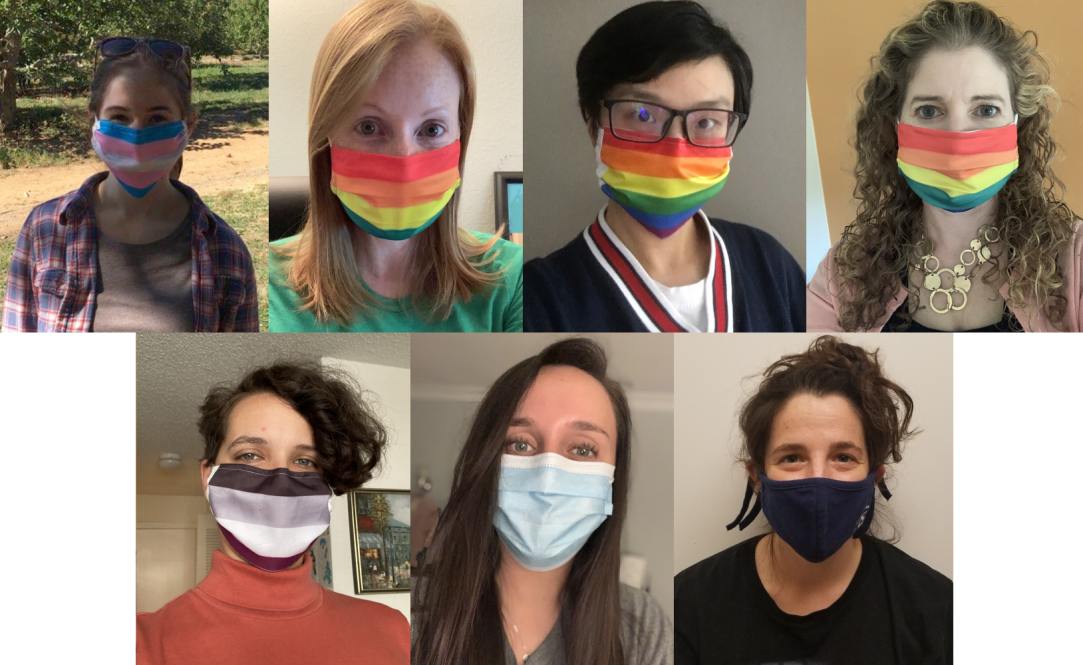The COVID-19 pandemic uprooted the lives of many college students throughout the country as they were unexpectedly forced to move home when campuses closed. Many struggled with the adjustment to living with their families full time. But in some cases, LGBTQ+ students had additional concerns and challenges associated with the transition.
Eva Lefkowitz, professor and head of the department of Human Development and Family Sciences at UConn, investigated the impact of COVID-19 campus closures on LGBTQ+ students. Graduate students Alyssa Clark, Rachael Farina, Veronica Hanna-Walker, Samantha Lawrence, Tracy Walters, and Yuan Zhang had active roles in the conception and execution of the study.
This project was funded by the Institute for Collaboration on Health, Intervention and Policy (InCHIP) Rapid Response seed funding, which was deployed quickly at the onset of the pandemic to support innovation research on this emerging area of research.
Lefkowitz’s paper on the team’s findings will be presented as part of a symposium on “Individual and family functioning in vulnerable populations during the COVID-19 pandemic,” at the Society for Research in Child Development virtual conference in April.
LGBTQ+ students are generally at higher risk of anxiety, depression, and substance abuse. Lefkowitz and her team hypothesized that this population may experience additional struggles with these issues when they were unexpectedly sent back to what may be a less-supportive home environment.
For many LGBTQ+ students, the college environment allows them to express and explore their sexual orientation and/or gender identity in a supportive space.
“They’re in an environment where they can find, sometimes for the first time, people that are like them, from the LGBTQ+ community,” Lefkowitz says.
LGBTQ+ students may carefully time when they come out to their families so that they would be away at college for several months afterwards. The sudden closures may have thrown these plans off.
After surveying 455 LGBTQ+ students from 32 universities across the country, Lefkowitz and her team found 90% of respondents reported being more stressed after their campuses closed because of the pandemic. They also indicated significant increases in anxiety and depression.
“The students’ perception is that as a result of the pandemic they experience more stress, anxiety, and depression,” Lefkowitz says.
An important factor for these changes is the relationship the students have with their parents. If their parents are emotionally supportive and express positive attitudes toward them, the respondents were less likely to experience negative effects on their wellbeing.
Interestingly, the researchers did not find any difference between the reported experiences of LGBTQ+ students who were living with their parents versus those who were not after campuses closed.
“It’s really the relationship with the parents that seems to matter rather than if you’re with them all the time,” Lefkowitz says.
Lefkowitz and her team are still looking at data from the open-ended questions they asked respondents about whether they changed how they expressed their sexual orientation and/or gender identity at home versus at college.
“There’s just such a range of responses so we’re very excited to analyze that data,” Lefkowitz says.
Lefkowitz says these findings can be generalized beyond the current pandemic. In a regular academic year, there are multiple, extended breaks which may have similar effects for LGBTQ+ students as the sudden closure this year. Lefkowitz is interested in pursuing a future study that looks at how these regularly scheduled academic breaks affect stress, anxiety, and depression for this population.
“That could help universities know what to do not just in the pandemic, but in the day-to-day to support LGBTQ+ students who may not feel very supported at home,” Lefkowitz says.
Although this is the first study she has done looking at the LGBTQ+ population, Lefkowitz intends to continue to pursue this angle in future research.
“A lot of the research out there is on the risks for this population,” Lefkowitz says. “This study has gotten me more interested in understanding strengths in the LGBTQ+ population and what is linked to thriving for this population.”
Lefkowitz holds a Ph.D. in developmental psychology from the University of California, Los Angeles. Her research interests include sexual health across adolescence and the transition to adulthood, LGBTQ+ college students’ wellbeing, romantic relationship development, communication about sexuality and other health topics, and sexual violence prevention.



